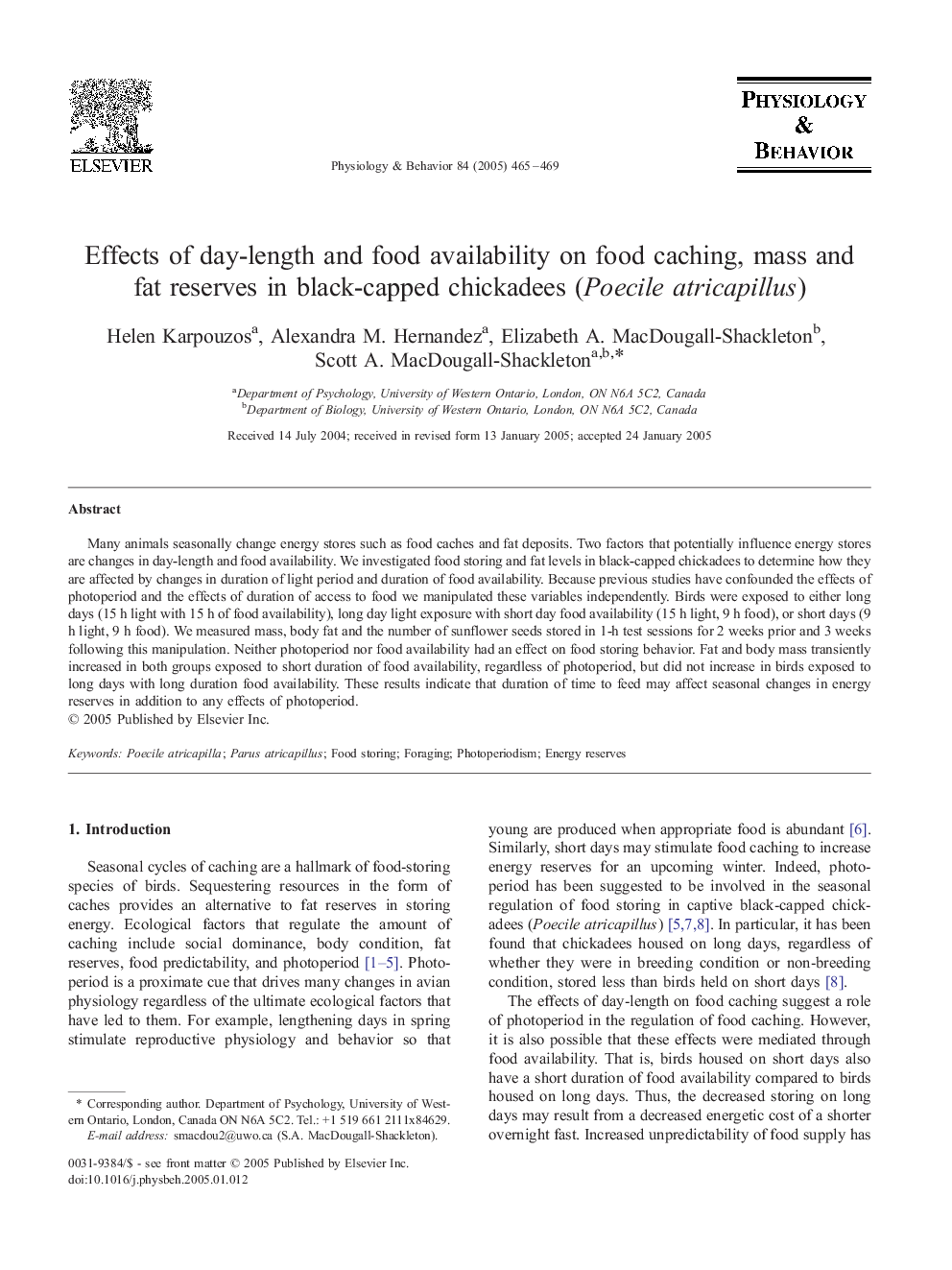| Article ID | Journal | Published Year | Pages | File Type |
|---|---|---|---|---|
| 9149769 | Physiology & Behavior | 2005 | 5 Pages |
Abstract
Many animals seasonally change energy stores such as food caches and fat deposits. Two factors that potentially influence energy stores are changes in day-length and food availability. We investigated food storing and fat levels in black-capped chickadees to determine how they are affected by changes in duration of light period and duration of food availability. Because previous studies have confounded the effects of photoperiod and the effects of duration of access to food we manipulated these variables independently. Birds were exposed to either long days (15 h light with 15 h of food availability), long day light exposure with short day food availability (15 h light, 9 h food), or short days (9 h light, 9 h food). We measured mass, body fat and the number of sunflower seeds stored in 1-h test sessions for 2 weeks prior and 3 weeks following this manipulation. Neither photoperiod nor food availability had an effect on food storing behavior. Fat and body mass transiently increased in both groups exposed to short duration of food availability, regardless of photoperiod, but did not increase in birds exposed to long days with long duration food availability. These results indicate that duration of time to feed may affect seasonal changes in energy reserves in addition to any effects of photoperiod.
Related Topics
Life Sciences
Biochemistry, Genetics and Molecular Biology
Physiology
Authors
Helen Karpouzos, Alexandra M. Hernandez, Elizabeth A. MacDougall-Shackleton, Scott A. MacDougall-Shackleton,
